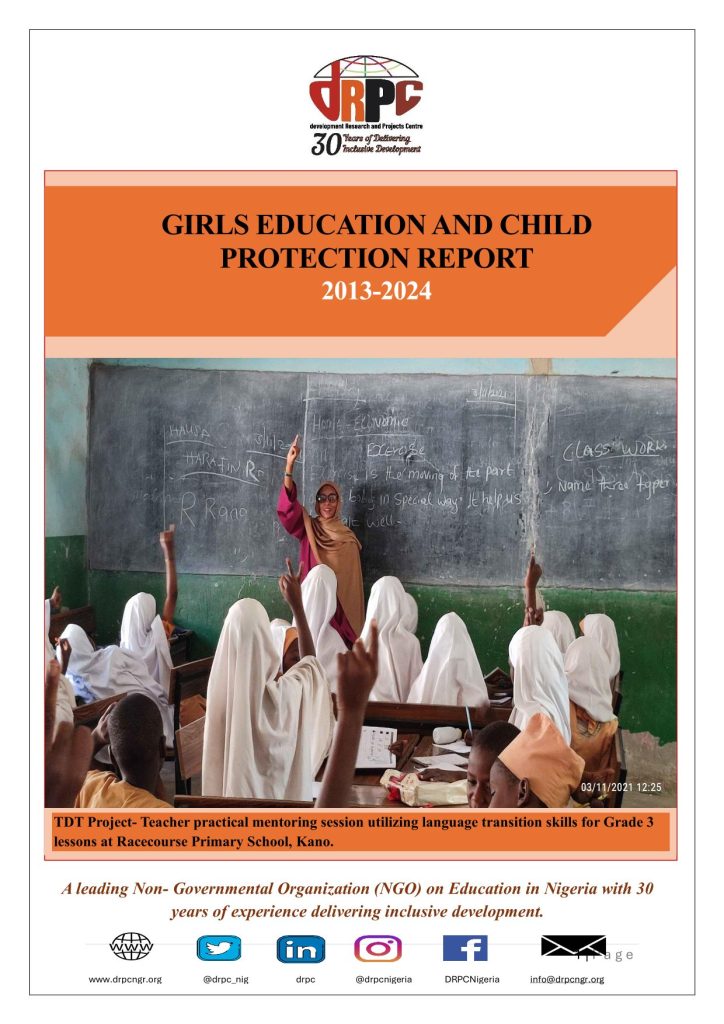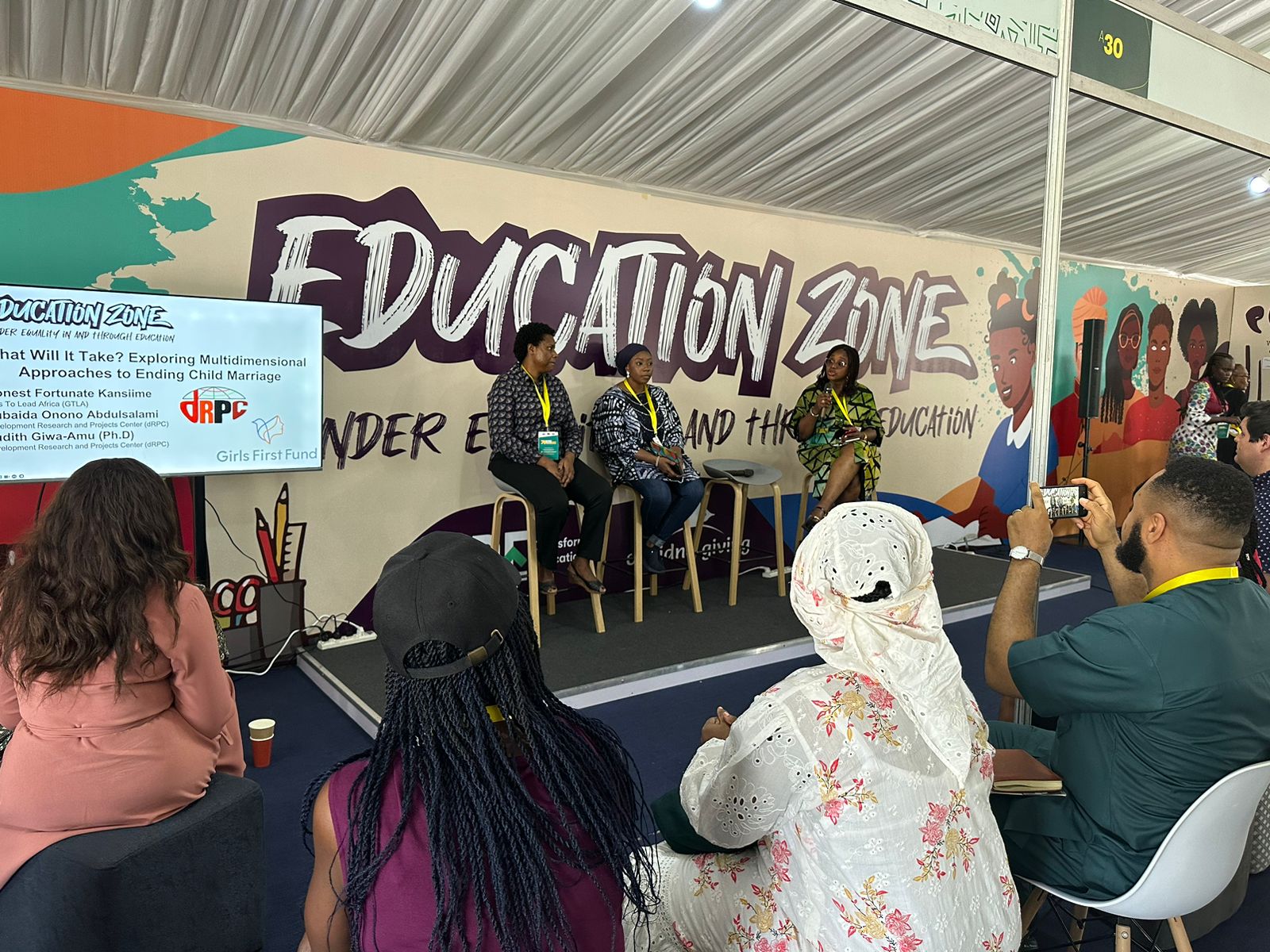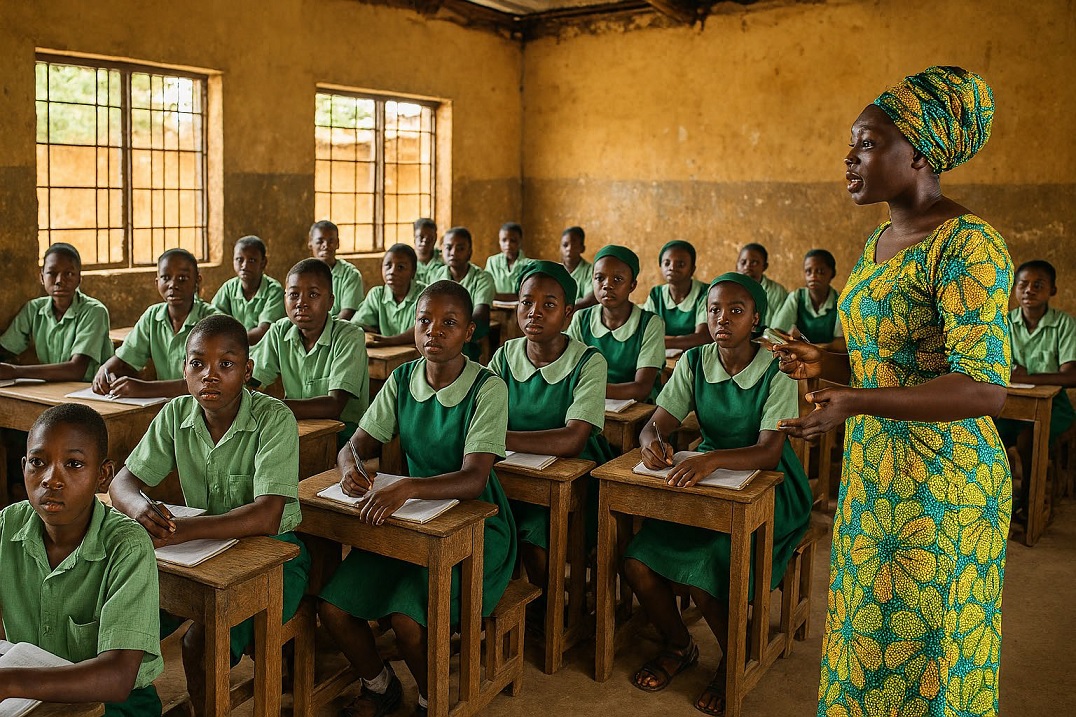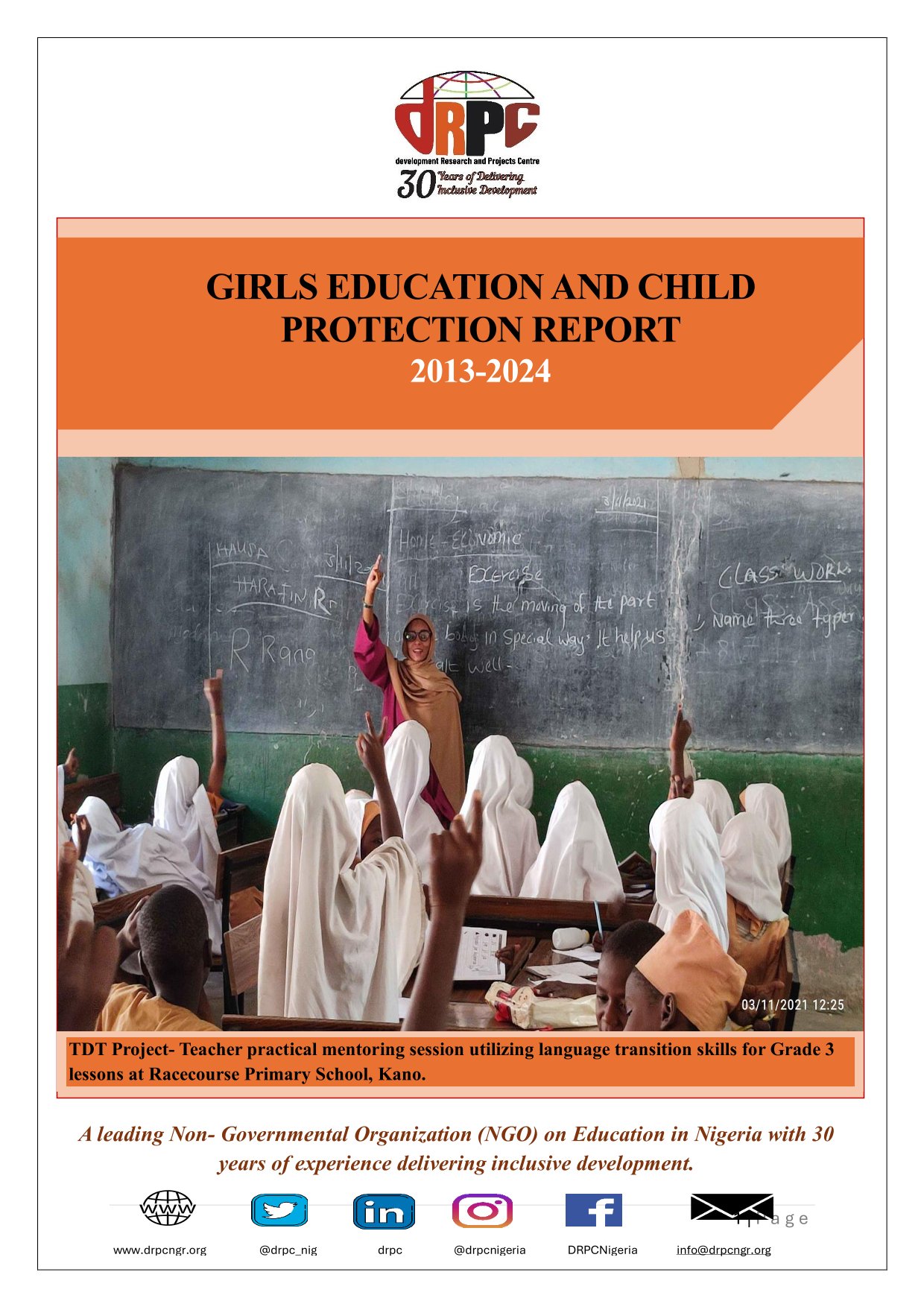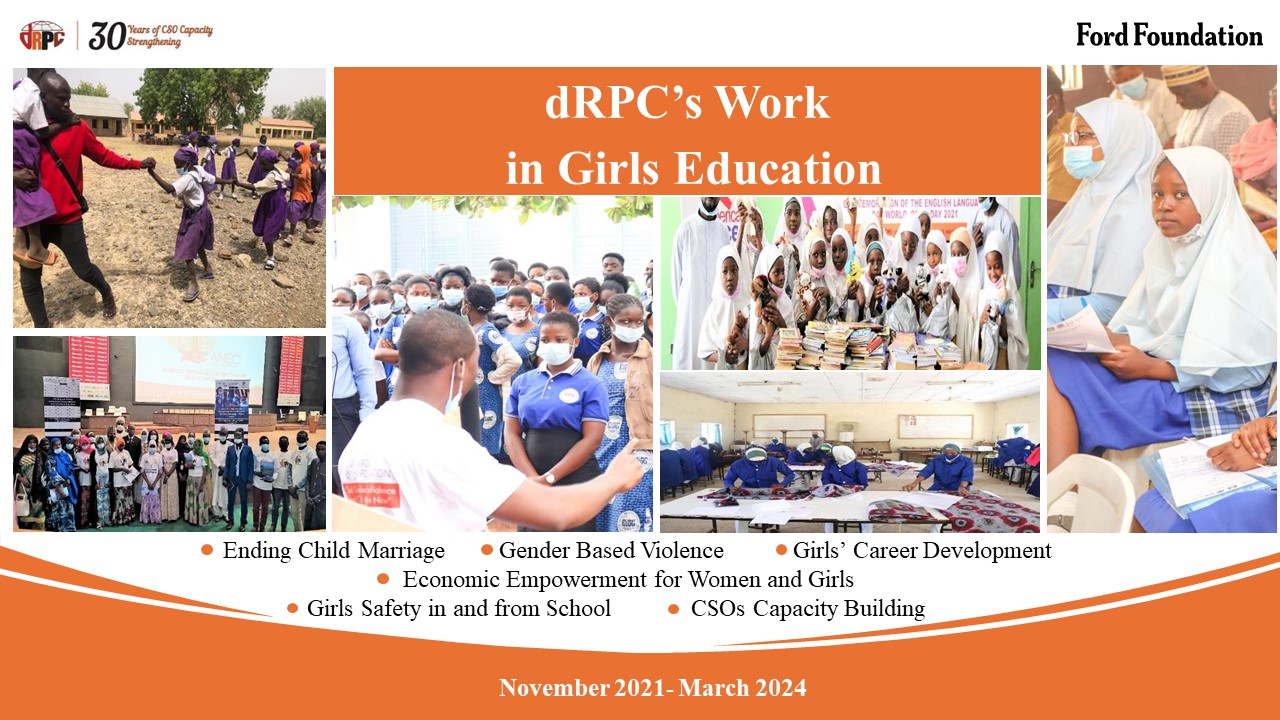Girls’ education and education policy reform are the foundational programming areas of work of the dRPC. In this broad area, we do two things:
- Advocate for and provide technical assistance to government for education policy reform; and
- We design and pilot innovative projects to advance girls’ education at ECCE, basic and secondary education
The dRPC rolled out its education work in 1993 with funding from the Bernard Van Leer Foundation to advocate for a national integrated ECCD policy and to pilot community-based ECCD centers with gender parity. With a grant of €50,000 dRPC commenced programming at a time when Nigeria had no national policy on early childhood development and formal school began at primary school level. Through the 1995 National ECCD Conference, the dRPC commenced its advocacy program, and by 1999, the dRPC rolled out community ECCD centers in Kano state. By 2019 the dRPC was supporting 40 community ECCD centers in Kano and Jigawa States with MacArthur Foundation funding under the PSIPSE project. The project aimed to strengthen the capacity of 40 young girls completing secondary education from poor families who did not have family support of the PSIPSE project through 10 designed capacity building workshops by experts to establish and sustain community based ECCD schools with the purpose of transforming their sense of failure to transition to tertiary institution into leveraging on their passion for education to earn a sustainable livelihood, provide an opportunity for the ECCD aged out of school children from low income families to enroll in basic education and with a long term goal of reducing the possibilities of early marriage and complete drop out from school.
Key activities carried out by the dRPC on this project included the donation of material to girls running community ECCD Centers, training of the girls in play-based learning, and registration of their community schools. The denotation of play and educational items as well as infrastructural materials for the community schools was the main activity carried out by the dRPC in this project: For example, the recent donation of Education replenishment packs by the dRPC to 23 ECCD proprietresses on the 11th of December 2024 (link to news report)
As of December 2024, 23 of the 40 empowered girls have consistently run their ECCD schools providing basic numeracy and literacy skills to children aged 0-5 years. These schools were registered by the Corporate Affairs Commission (CAC) with the support of the dRPC. By 2024, 40% of the girls will have completed the Nigerian Certificate for Education (NCE) and Basic Health programs to become known as community teachers, employers of labor in their communities and role models for young girls in their communities.
An exceptional success story of one of the girls, Fatima Dahiru in Gwaram, Jigawa State, who have established beyond the ECCD schools to a secondary school, completed her tertiary education program and employed for seven teachers with the Nigeria Certificate of Education (NCE). The 39 established ECCD schools since inception have enrolled over 10,000 pupils in the 5-year span, created employment for 82 young people and have been continually supported by the states’ education MDAs.
Through this dRPC project, the participating girls are now community assets, respected family members and benefactors to community members. A significant achievement of this innovation is a 360 milestone of transitioning and completing tertiary education programs by 40% of the project champions still running their schools as of 2024, making them role models to the younger generation. (To view, click on Project documentary and project webpage.
Our Impact in the Education Space
Our Education Activities
Memberships on National /Global Platforms
- Global Campaign for Education – United States (GCE- US) – development Research and Projects Centre (dRPC) – GCE-US
- Inclusive Education and Early Childhood Community of Practice – (GCE- US)
- International Play Association (IPA)
- National Education Stakeholder Core Group – Federal Ministry of Education
- Education in Emergencies Working Group (Nigeria)- Federal Ministry of Education
- Climate Change Education National Working Group – Federal Ministry of Education
- Ending Child Marriage Core Group – Federal Ministry of Women Affairs
- National Council of Education – Kano State Ministry of Education (Delegate)

